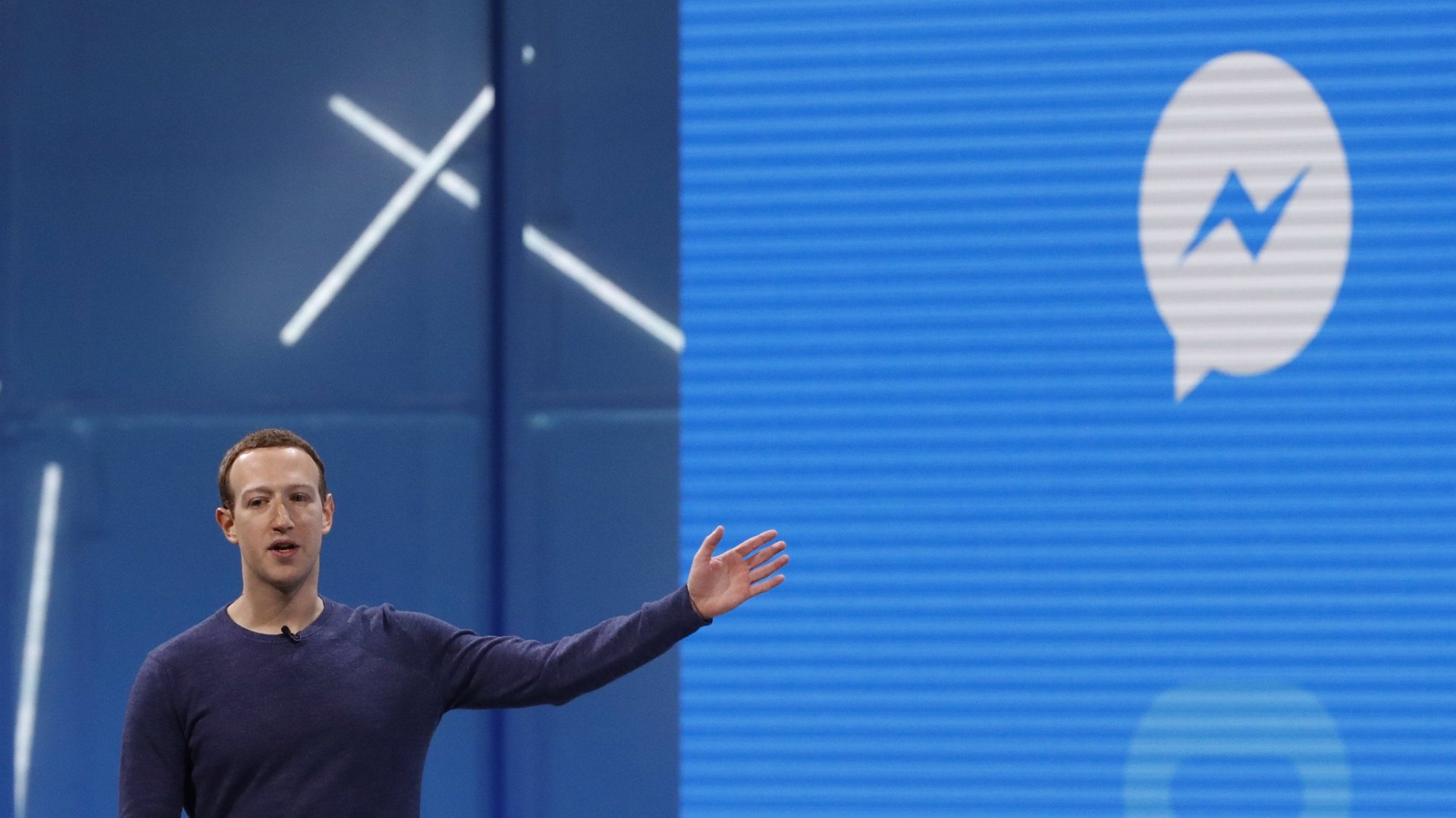Consumer groups are demanding Facebook kill its Messenger app for kids
That Facebook let kids spend thousands of dollars on games without their parents’ permission is not altogether surprising. That the company referred to the practice as “friendly fraud,” encouraged developers to let it happen, chose not to introduce controls to stop it, and called high-spending children “whales”—a nickname commonly associated with big-money gamblers at a casino—is shocking, to say the least.


That Facebook let kids spend thousands of dollars on games without their parents’ permission is not altogether surprising. That the company referred to the practice as “friendly fraud,” encouraged developers to let it happen, chose not to introduce controls to stop it, and called high-spending children “whales”—a nickname commonly associated with big-money gamblers at a casino—is shocking, to say the least.
Now, a consumer coalition is demanding that Facebook discontinue Messenger for kids, its social media platform for young children. The Campaign for a Commercial-Free Childhood (CCFC), Common Sense Media, and and 12 other advocacy groups say the details of Facebook’s actions, uncovered by the Center for Investigative Reporting and published by the news organization Reveal based on documents unsealed in a class-action lawsuit, show that the social media giant disregarded children’s interests.
“The documents appear to demonstrate that Facebook is willing to cause actual harm to children and families in its quest for profit,” the letter states. “As such, Facebook is unfit to make any platform or product for children, especially one like Messenger Kids, which gives Facebook unfettered access to kids’ relationships, conversations, and private moments with friends and family.”
According to the documents, covering 2010 to 2014, Facebook employees knew that kids were spending money on games without parental permission. To reverse the charges, parents would have to complain to credit card companies or take legal action against Facebook. “It appears Facebook did nothing to change these obviously predatory and deceptive practices until a class-action settlement forced its hand in 2016,” according to the letter.
US Senators Edward Markey (D-Ma.) and Richard Blumenthal (D-Ct.) also sent a letter to Mark Zuckerberg asking for more information, including when the company (and Zuckerberg himself) learned that children were “unknowingly spending their parents’ money while playing games on your platform,” and why the company chose not implement a tool it created to curb the practice.
In response to the Reveal story, Facebook said it works with parents and experts to “offer tools for families navigating Facebook and the web.” It continued: “As part of that work, we routinely examine our own practices, and in 2016 agreed to update our terms and provide dedicated resources for refund requests related to purchases made by minors on Facebook.”
This is not the first time the CCFC has asked Facebook to get rid of its kid-focused Messenger app. A year ago, the organization sent a letter (pdf) signed by more than 100 public health advocates, arguing that the company should ditch the product because, it argued, “Messenger Kids is not responding to a need – it is creating one.” It also sent a petition signed by more than 21,000 people urging the company to discontinue the app. It argued that children as young as five did not have the ability to manage the “challenges and harm of social media” (which, it should be noted, are widely contested).
But the Reveal story catapulted the issue from a potential danger to what it calls “intentionally exploitative motivations and business practices regarding children.”
Facebook has angered a lot of people recently. The US Congress is mad the company’s executives for being less than forthcoming about the company’s knowledge of Russian interference with US elections. The EU is mad about data protection and how to police hate speech. The media is mad that Facebook is mad at the media for reporting on Facebook’s practices. The list goes on, and now also includes parents, a formidable group if ever there was one.